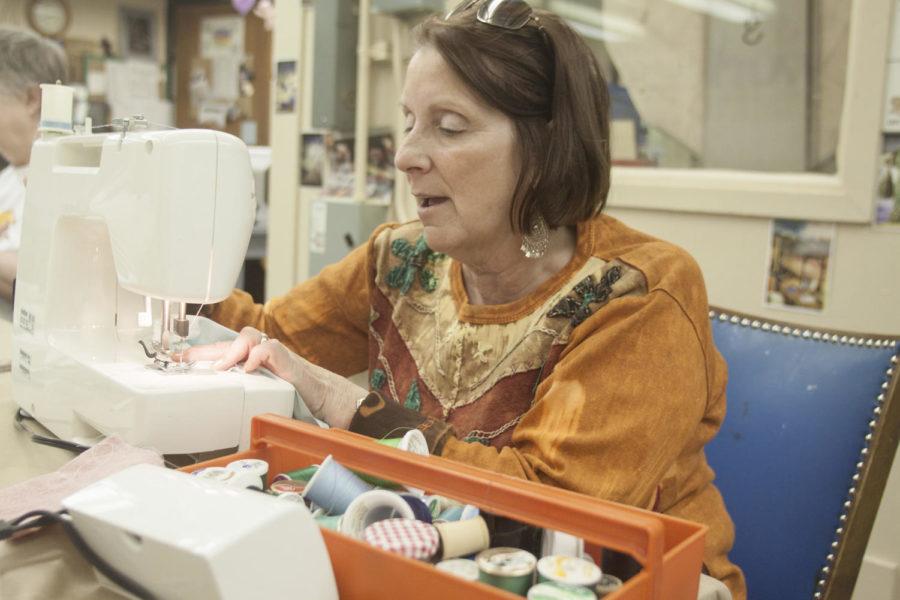Volunteers sew hope for underprivileged girls
Photo: Kelsey Kremer/Iowa State Daily
Helen Evans, of Clive, makes a dress out of a pillowcase for Little Dresses for Africa for the first time on April 15, 2012 in the Workspace.
April 15, 2012
Little Dresses for Africa, a nonprofit organization, came alive in a workshop on Sunday afternoon for ISU students and volunteers to sew dresses made out of pillowcases and other fabrics to assist in putting a dent in a third-world problem.
Beverly Nutt, a retired clerk for the ISU department of chemistry, said the encouragement of her daughter to attend a Little Dresses for Africa workshop inspired Nutt to start sewing dresses two years ago.
“Some lady in Michigan got [Little Dresses for Africa] started, and the idea is that you can make a dress out of a pillowcase or just fabric. Her idea was that it gives the girls hope and confidence,” Nutt said.
Nutt said she has sewed more than 100 dresses over her two years volunteering for Little Dresses for Africa.
Little Dresses for Africa encourages volunteers to assist in the cause, even if they do not know how to sew. Helen Evans, a school psychologist for the Des Moines Public School District, jumped at the chance to help out despite not sewing frequently.
“I haven’t sewed in years and I saw it and thought, ‘Gosh, this is up my alley,’” Evans said. “I like helping people.”
Evans decided to sew for Little Dresses for Africa after seeing an ad in The Des Moines Register, wanting to find others who shared her spirit of charity.
According to Little Dresses for Africa’s website, the pictures of the recipients of the dresses that volunteers such as Nutt and Evans sew often do not immediately show their gratitude because they are not used to gifts or strangers.
“They’re not used to receiving gifts, especially from mostly white strangers. They are very happy to receive the dresses and once they get off by themselves you will see them delight in their gifts, but not always in front of the strangers,” according to Little Dresses for Africa.
“They say the little girls at first are leery, because when they’re delivered by a bunch of women, they’re kind of like, ‘These people are new to us, strangers’, but then it breaks down boundaries and people understand one another better,” Nutt said. “Not only does this help the children, actually the more you give the more you give of yourself, the better you feel.”

















